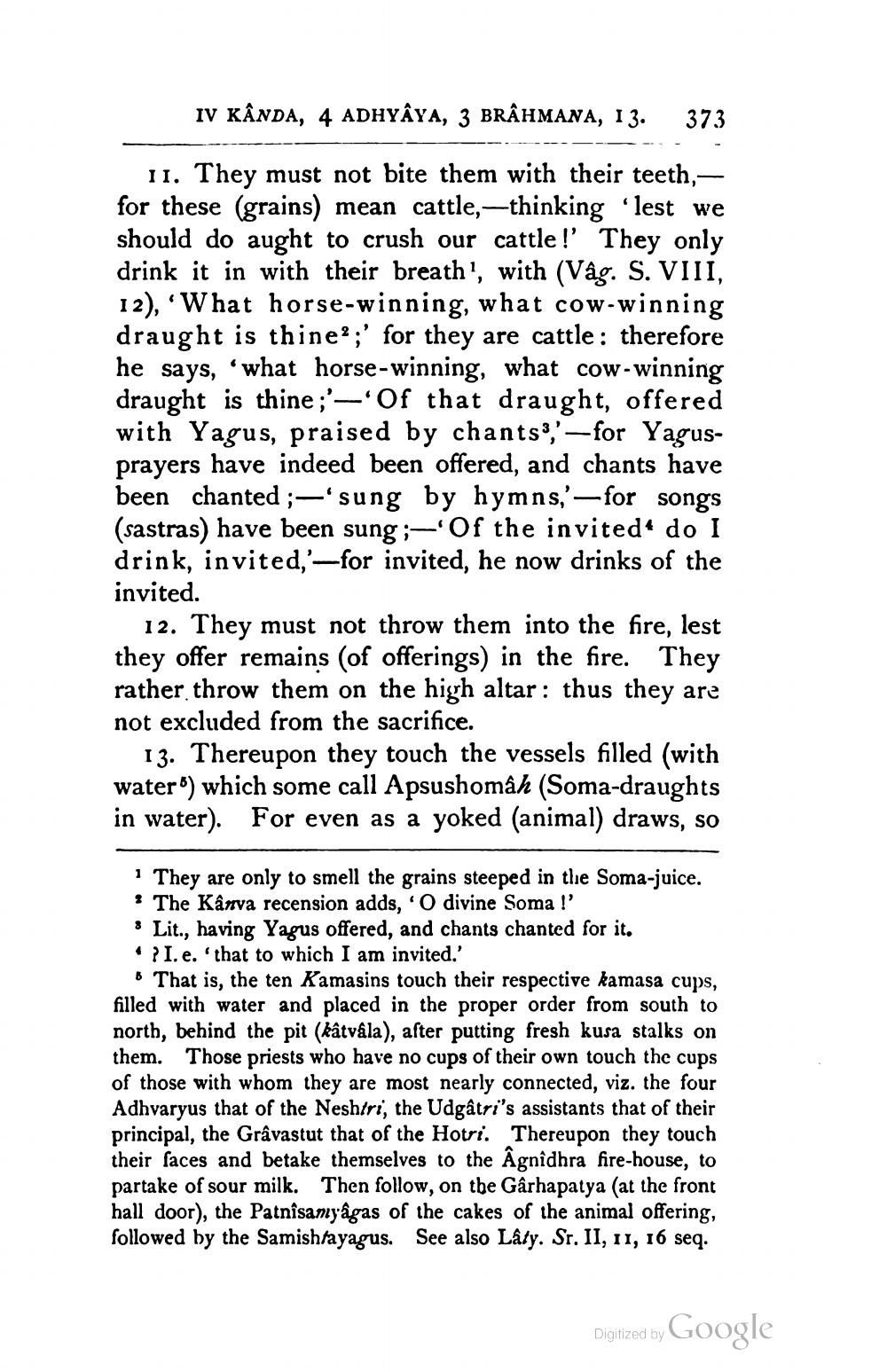________________
IV KÂNDA, 4 ADHYAYA, 3 BRÂHMANA, 13.
373
11. They must not bite them with their teeth, - for these (grains) mean cattle,-thinking 'lest we should do aught to crush our cattle!' They only drink it in with their breath', with (Vág. S. VIII, 12), 'What horse-winning, what cow-winning draught is thine? ;' for they are cattle: therefore he says, “what horse-winning, what cow-winning draught is thine;'—'Of that draught, offered with Yagus, praised by chants,'—for Yagusprayers have indeed been offered, and chants have been chanted ;- sung by hymns,'- for songs (sastras) have been sung ;-Of the invited“ do I drink, invited,'--for invited, he now drinks of the invited
12. They must not throw them into the fire, lest they offer remains (of offerings) in the fire. They rather throw them on the high altar: thus they are not excluded from the sacrifice.
13. Thereupon they touch the vessels filled (with water") which some call Apsushomâh (Soma-draughts in water). For even as a yoked (animal) draws, so
They are only to smell the grains steeped in the Soma-juice. ? The Kânva recension adds, 'O divine Soma !
Lit., having Yagus offered, and chants chanted for it. . ? I.e. 'that to which I am invited.'
That is, the ten Kamasins touch their respective kamasa cups, filled with water and placed in the proper order from south to north, behind the pit (katvala), after putting fresh kusa stalks on them. Those priests who have no cups of their own touch the cups of those with whom they are most nearly connected, viz. the four Adhvaryus that of the Neshtri, the Udgâtri's assistants that of their principal, the Grâvastut that of the Hotri. Thereupon they touch their faces and betake themselves to the Agnidhra fire-house, to partake of sour milk. Then follow, on the Gârhapatya (at the front hall door), the Patnîsamyâgas of the cakes of the animal offe followed by the Samishayagus. See also Laty. Sr. II, 11, 16 seq.
Digitized by Google




